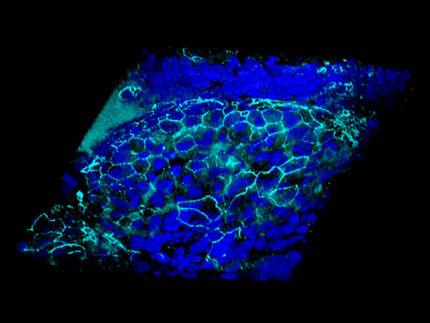Exome sequencing of health condition extremes can reveal susceptibility genes
DNA from cystic fibrosis patients with and without chronic infections points to unsuspected mutation
Advertisement
Comparing the DNA from patients at the best and worst extremes of a health condition can reveal genes for resistance and susceptibly. This approach discovered rare variations in the DCTN4 gene among cystic fibrosis patients most prone to early, chronic airway infections.
The DCTN4 gene codes for dynactin 4. This protein is a component of a molecular motor that moves trouble-making microbes along a cellular conveyer belt into miniscule chemical vats, called lysosomes, for annihilation.
This study, led by the University of Washington, is part of the National Heart Lung and Blood Institute GO Exome Sequencing Project and its Lung GO, both major National Institutes of Health chronic disease research efforts.
Similar "testing the extremes" strategies may have important applications in uncovering genetic factors behind other more common, traits, such as healthy and unhealthy hearts. The results of the cystic fibrosis infection susceptibility study appear in Nature Genetics.
The infection in question was Pseudomonas aeruginosa, an opportunistic soil bacterium that commonly infects the lungs of people with cystic fibrosis and other airway-clogging disorders. The bacteria can unite into a slithery, hard-to-treat biofilm that hampers breathing and harms lung tissue. Chronic infections are linked to poor lung function and shorter lives among cystic fibrosis patients. These bacteria rarely attack people with normal lungs and well-functioning immune systems.
In the study, these rare variations in DCTN4 did not appear in any of the cystic fibrosis patients who were the most resistant to Pseudomonas infection. The study subjects most susceptible to early, chronic infection had at least one DCTN4 missense variant. A missense variant produces a protein that likely can't function properly.

























































